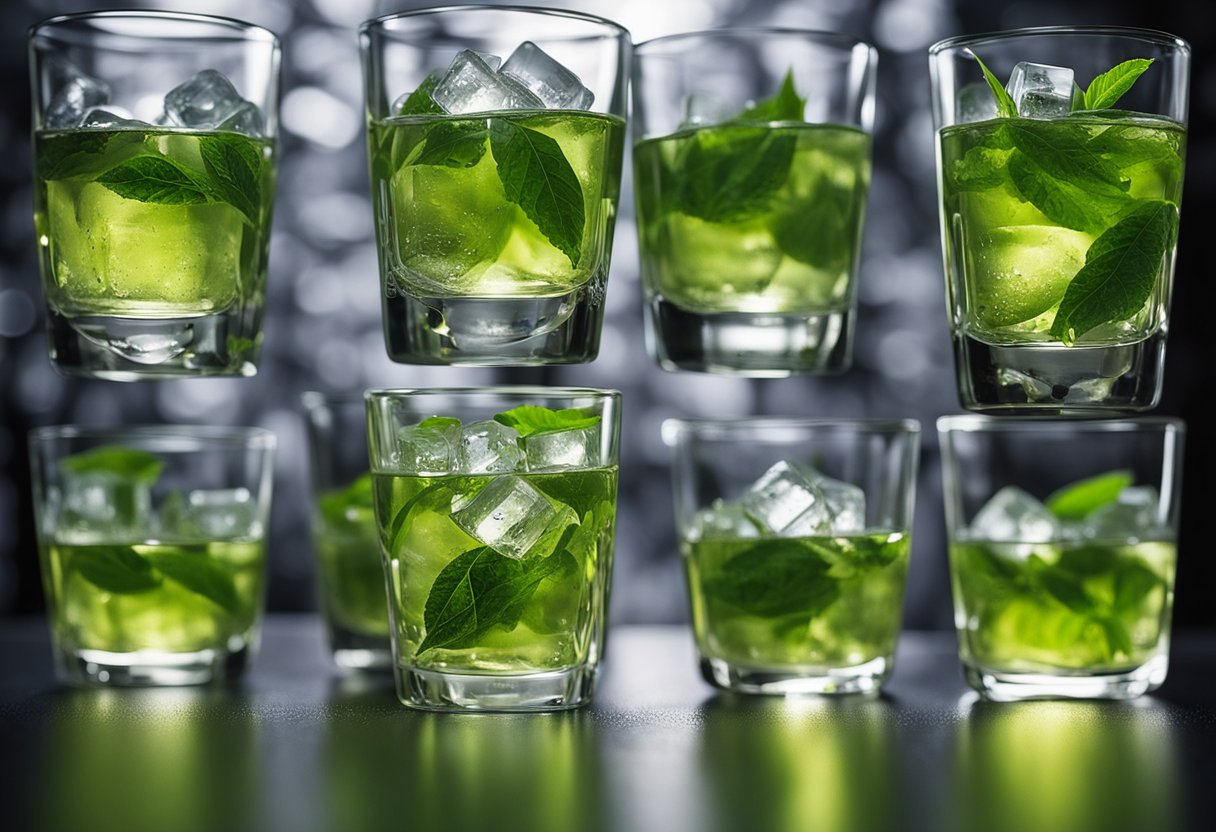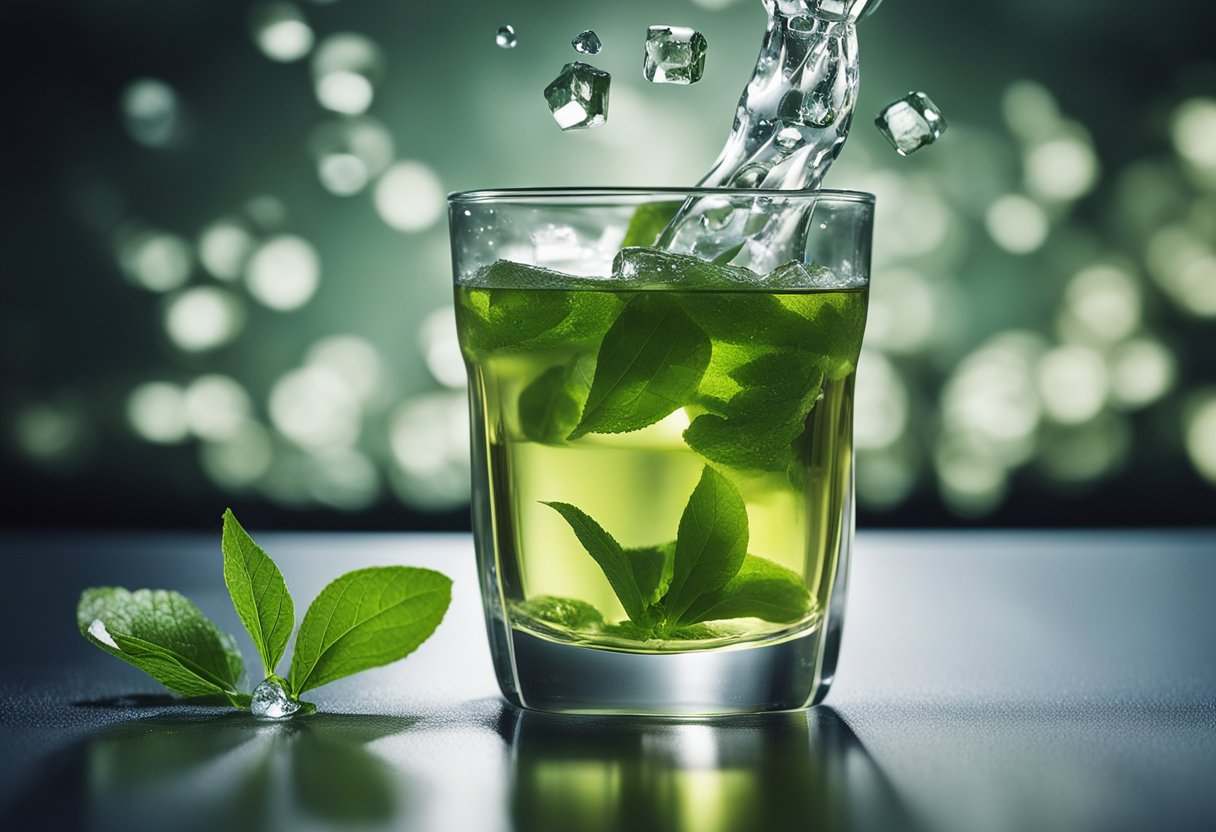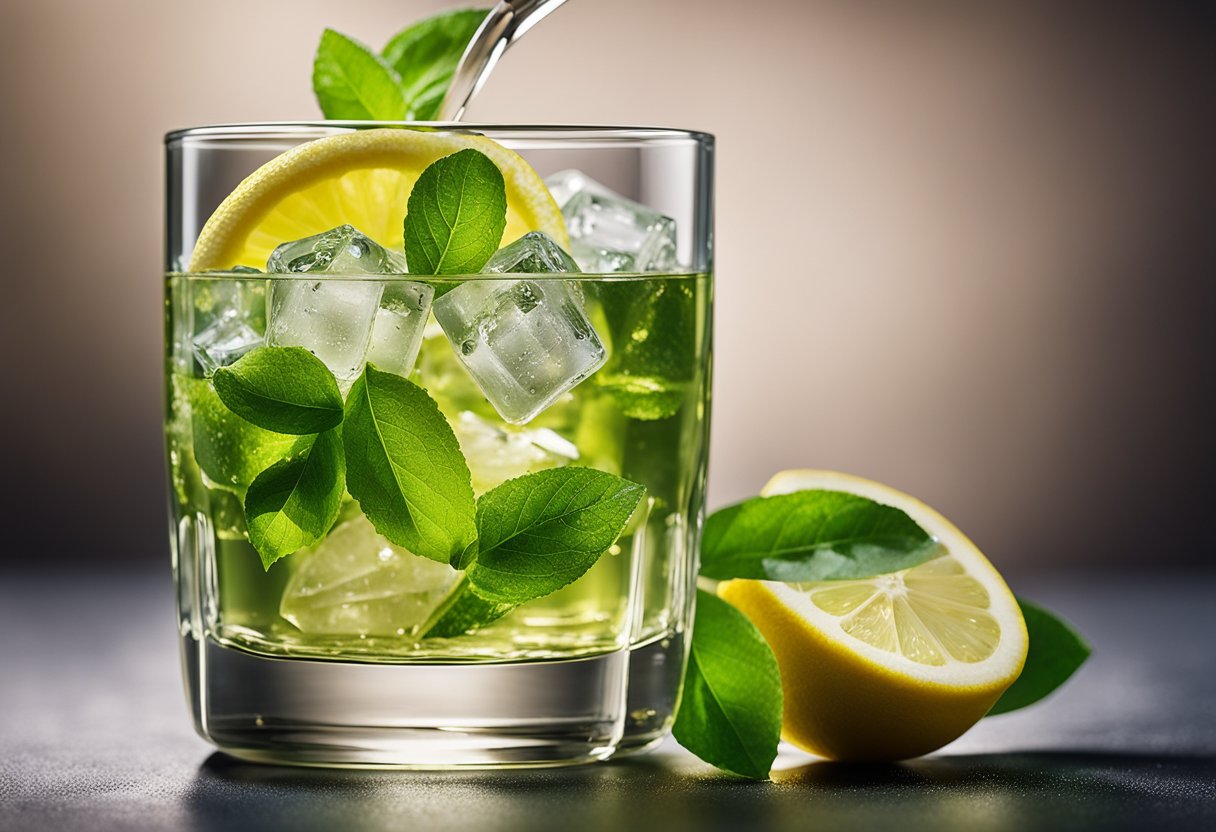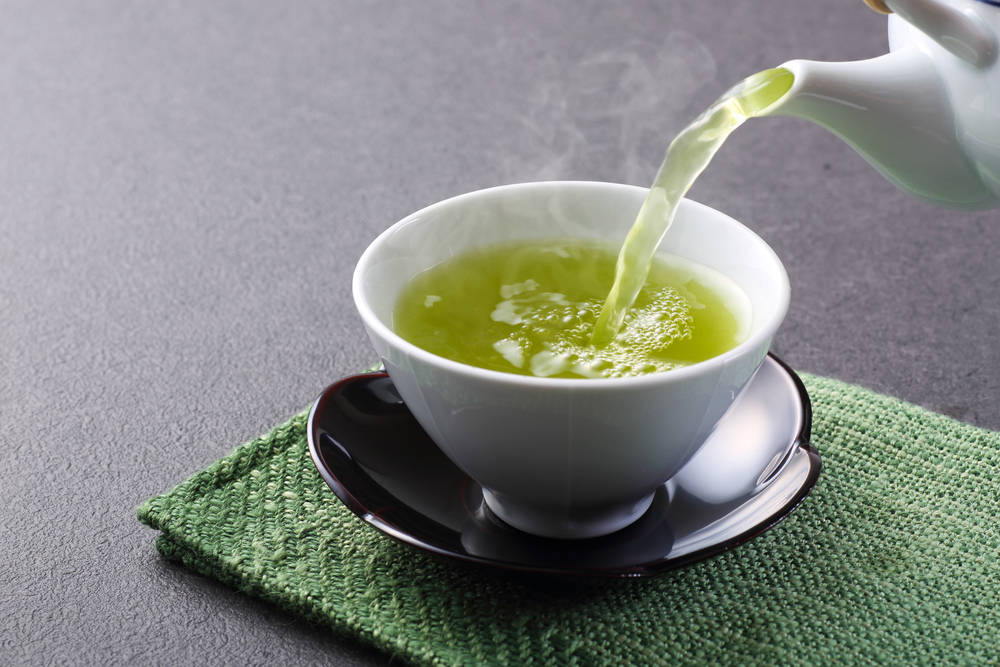I have been asked whether green tea is better hot or cold. Green tea is a popular drink that has been consumed for centuries in many cultures. It is known for its health benefits and unique taste.
However, people often wonder whether they should drink it hot or cold. In this article, I will explore the differences between hot and cold green tea, and provide insight into which one is better for you.

Green tea is made from the leaves of the Camellia sinensis plant. It is rich in polyphenols and antioxidants, which are believed to have many health benefits. Green tea is traditionally consumed hot, but it can also be enjoyed cold.
Some people prefer the taste of cold green tea, while others prefer it hot. The temperature at which you drink your green tea can affect its taste and nutrient availability. So, which one is better for you? Let’s find out.
Key Takeaways
- Green tea is a popular drink that has been consumed for centuries in many cultures.
- The temperature at which you drink your green tea can affect its taste and nutrient availability.
- Whether you prefer hot or cold green tea comes down to personal preference.
Understanding Green Tea
Green tea comes from the leaves of the Camellia sinensis plant, which is native to China and other parts of Asia. Green tea is known for its high content of catechins, polyphenols, and antioxidants, which are believed to provide a range of health benefits.
Catechins are a type of flavonoid that are found in green tea. The most abundant catechin in green tea is epigallocatechin gallate (EGCG), which is believed to be responsible for many of the health benefits associated with green tea consumption.
Other catechins found in green tea include epicatechin (EC), epigallocatechin (EGC), and catechin (C).
Polyphenols are a type of antioxidant that are found in green tea. They are believed to help protect the body against free radicals, which are unstable molecules that can damage cells and contribute to the development of diseases such as cancer and heart disease.
In addition to catechins and polyphenols, green tea also contains other antioxidants such as flavonoids and tannins. Flavonoids are a type of antioxidant that are found in many fruits and vegetables, while tannins are a type of antioxidant that are found in tea and other plant-based foods.
Green tea also contains an amino acid called L-theanine, which is believed to have a calming effect on the body and may help improve mental focus and concentration.
L-theanine is also believed to work synergistically with caffeine to provide a boost of energy without the jitters or crashes associated with other caffeinated beverages.
Overall, green tea is a rich source of antioxidants and other beneficial compounds that may help promote good health and prevent chronic diseases. Whether you prefer your green tea hot or cold, regular consumption of this beverage can be a great addition to a healthy diet and lifestyle.
Hot vs Cold Green Tea
When it comes to brewing green tea, one of the most common debates is whether hot or cold green tea is better. As someone who has tried both, I can say that both methods have their own unique benefits.
Hot Green Tea
Hot green tea is the most traditional way to prepare the beverage. The process of steeping the tea leaves in hot water releases the natural flavors and antioxidants of the tea, resulting in a rich, earthy flavor.
Hot green tea is perfect for those who love the bold taste of tea and want to enjoy the full benefits of the beverage.
To prepare hot green tea, simply boil water and let it cool for a few minutes (the ideal temperature is around 175°F). Then, add the tea leaves to a strainer or infuser and steep for 1-3 minutes, depending on your preference. Remember not to over-steep the tea, as this can result in a bitter taste.
Cold Green Tea
Cold green tea, also known as iced green tea, is a refreshing alternative to hot tea, especially during the summer months. Cold brewing green tea results in a smoother, sweeter taste, making it perfect for those who prefer a milder flavor.
To prepare cold green tea, add the tea leaves to a pitcher of cold water and let it steep in the refrigerator for several hours or overnight. The longer you let the tea steep, the stronger the flavor will be. Alternatively, you can use a cold brewer to make the process even easier.
One of the benefits of cold green tea is that it is less likely to become bitter, as the lower temperature and longer steeping time prevent the release of tannins that can cause bitterness.
Conclusion
In conclusion, whether you prefer hot or cold green tea comes down to personal preference and the occasion. Hot green tea is perfect for those who want a bold, earthy flavor and the full benefits of the tea, while cold green tea is a refreshing alternative that is perfect for hot summer days.
Regardless of how you choose to brew your green tea, it is important to pay attention to the temperature and steeping time to ensure the best possible flavor and health benefits.
Nutrient Availability

When it comes to nutrient availability, green tea can be consumed either hot or cold without losing its beneficial compounds. According to Dr. Hakim, chilling brewed hot tea in the refrigerator does not diminish the availability of the polyphenols.
However, adding ice to the tea can reduce the bioavailability of the polyphenols as caffeine combines with them to form an insoluble complex [1].
One study found that cold water steeping increases the antioxidant capacity and catechin levels of green tea while reducing its caffeine content.
Contrary to popular belief, green tea does not lose antioxidants and other phytochemicals when cold [2]. This means that whether you prefer your green tea hot or cold, you can still enjoy its health benefits without worrying about nutrient loss.
Green tea is known for its rich polyphenol and antioxidant content, which can provide various health benefits.
These compounds can help reduce inflammation, lower blood pressure, and improve brain function [1,3]. Green tea also contains caffeine, which can have both positive and negative effects on a person and should not be underestimated [2].
In terms of other nutrients, green tea is not a significant source of vitamins, minerals, or protein. However, it does contain small amounts of some minerals, such as manganese and potassium [3]. Overall, green tea is a healthy beverage choice that can provide various health benefits, whether consumed hot or cold.
Health Benefits and Side Effects
Green tea is a popular beverage that is known for its numerous health benefits. It is rich in antioxidants, which help to protect the body against damage caused by free radicals. Drinking green tea regularly has been associated with a reduced risk of cancer, heart disease, stroke, and type 2 diabetes.
One of the main health benefits of green tea is its ability to aid in weight loss. Green tea has been shown to boost metabolism, increase fat burning, and reduce appetite. It also contains caffeine, which can help to improve physical performance.
Green tea has also been found to have a positive effect on brain function. It contains an amino acid called L-theanine, which can help to improve mood, reduce stress, and increase alertness. L-theanine also works in synergy with caffeine to improve brain function.
While green tea is generally considered safe, it can cause side effects in some people. These side effects may include headache, nausea, and an upset stomach.
Green tea can also interact with certain medications, so it is important to talk to your doctor before drinking green tea if you are taking any medications.
In addition, green tea contains caffeine, which can cause problems for some people. Caffeine can cause insomnia, anxiety, and an increased heart rate. People who are sensitive to caffeine should be cautious when drinking green tea.
Overall, green tea is a healthy beverage that can provide numerous health benefits. It is rich in antioxidants, can aid in weight loss, and has a positive effect on brain function.
However, it is important to be aware of the potential side effects and to talk to your doctor before drinking green tea if you are taking any medications or have any health concerns.
Taste and Personal Preference
When it comes to taste, green tea can be enjoyed both hot and cold. The temperature at which green tea is consumed can affect its taste and aroma.
Hot green tea has a stronger, more bitter taste and a more potent aroma than cold green tea. The cold version of this beverage, on the other hand, has a sweeter, smoother taste and a less intense aroma.
Personal preference plays a significant role in determining whether one prefers hot or cold green tea. Some people prefer the bold, rich flavor of hot green tea, while others enjoy the refreshing sweetness of cold green tea. It all depends on individual taste and preference.
Adding honey or other sweeteners to green tea can enhance its flavor and make it more palatable. Honey is a popular sweetener for green tea and can be added to both hot and cold versions of this beverage.
However, it’s important to note that adding sweeteners to green tea can also add calories and negate some of the health benefits of this drink.
In conclusion, whether green tea is better hot or cold ultimately comes down to personal preference. Both versions of this beverage offer unique taste and aroma profiles and can be enjoyed with or without sweeteners. When it comes to choosing between hot or cold green tea, it’s best to experiment and find which version you prefer the most.
Green Tea in Different Cultures
Green tea has been consumed for centuries in various cultures around the world. Each culture has its own unique way of preparing and serving green tea. In this section, I will discuss the different ways that green tea is consumed in Japan and China.
Japan
In Japan, green tea is known as “matcha” and is an integral part of their culture. Matcha is made by grinding green tea leaves into a fine powder, which is then whisked with hot water. The resulting tea is a bright green color and has a strong, earthy flavor.
Matcha is often served during traditional Japanese tea ceremonies, which are highly ritualized events that can last for hours. During these ceremonies, guests are served small, delicate sweets to balance out the bitterness of the tea.
In addition to being consumed as a beverage, matcha is also used in cooking and baking. It can be added to everything from smoothies to ice cream to give it a unique, green tea flavor.
China
Green tea has been consumed in China for over 4,000 years and is an important part of their cultural heritage. In China, green tea is made by steaming or pan-frying the leaves to stop the oxidation process, which gives the tea its distinctive flavor and aroma.
There are many different varieties of green tea in China, each with its own unique flavor and aroma. Some of the most popular varieties include Longjing (Dragon Well), Bi Luo Chun (Green Snail Spring), and Huangshan Maofeng (Yellow Mountain Fur Peak).
In China, green tea is often served during meals and is believed to aid in digestion. It is also used in traditional Chinese medicine to treat a variety of ailments, including headaches, depression, and anxiety.
Overall, green tea is an important part of many cultures around the world. Whether it is consumed hot or cold, green tea offers numerous health benefits and is a delicious and refreshing beverage that can be enjoyed at any time of day.
Green Tea and Diet
I am often asked if green tea is a good dietary supplement. The answer is yes, green tea is an excellent addition to a healthy diet. Green tea is naturally low in calories and sugar, making it a great alternative to sugary drinks that can lead to weight gain.
One cup of green tea contains only 2-3 calories and is sugar-free, making it a great choice for those watching their calorie intake. Additionally, green tea is a good source of iron, which is essential for maintaining healthy blood cells.
Green tea is also known for its fat-burning properties. The catechins in green tea can help increase metabolism and promote fat oxidation. However, it is important to note that green tea alone is not a magic weight loss solution. It is best used as part of a healthy diet and exercise routine.
When it comes to supplements, green tea extract is a popular option. However, it is important to be cautious when using supplements and to consult with a healthcare professional before adding them to your routine.
In summary, green tea is a great addition to a healthy diet. It is low in calories and sugar, a good source of iron, and has fat-burning properties. However, it should be used in conjunction with a healthy diet and exercise routine, and supplements should be used with caution.
Other Considerations

When it comes to choosing between hot and cold green tea, there are a few other factors to consider beyond just taste preference. Here are some things to keep in mind:
Hydration
Staying hydrated is important for overall health, and both hot and cold green tea can contribute to your daily fluid intake. However, it’s worth noting that hot tea may be more effective at hydrating you than cold tea.
This is because hot liquids are absorbed more quickly by the body, which can help you stay better hydrated throughout the day.
Caffeine Content
If you’re sensitive to caffeine or trying to reduce your intake, it’s worth noting that hot green tea typically contains more caffeine than cold green tea.
This is because hot water extracts more caffeine from the tea leaves than cold water does. If you’re looking for a decaffeinated option, both hot and cold green tea are available in decaf varieties.
Other Beverages
While green tea is a great beverage choice, it’s not the only option out there. If you’re looking for a morning pick-me-up, coffee or black tea may be a better choice for you.
If you’re trying to stay hydrated during the summer months, water is always a good choice. Ultimately, the best beverage for you will depend on your individual needs and preferences.
Mental Alertness
Green tea contains a compound called L-theanine, which has been shown to improve mental alertness and focus. This compound is present in both hot and cold green tea, so you can reap the benefits no matter which temperature you prefer.
Digestive Symptoms
If you experience digestive symptoms like bloating or gas after drinking hot green tea, switching to cold green tea may be worth a try. Some people find that cold green tea is easier on their digestive system than hot green tea.
Anti-inflammatory Properties
Green tea is known for its anti-inflammatory properties, which can help reduce inflammation throughout the body. This is true whether you drink it hot or cold. If you’re looking to reduce inflammation, incorporating green tea into your diet is a great place to start.
Headaches
If you’re prone to headaches, it’s worth noting that hot green tea may trigger them for some people. If you find that hot green tea makes your headaches worse, switching to cold green tea may be worth a try.
Overall, whether you prefer hot or cold green tea will depend on your individual needs and preferences. Both options have their own unique benefits, so it’s worth experimenting to see which one works best for you.
Frequently Asked Questions
What are the benefits of hot green tea?
Hot green tea is known to help boost metabolism, aid in weight loss, and improve brain function. It is also rich in antioxidants, which can help reduce the risk of various diseases.
What are the benefits of cold green tea?
Cold green tea has a higher concentration of certain bioactive compounds, such as gallic acid and epigallocatechin, which can help reduce inflammation and improve bone strength. It is also a refreshing and hydrating beverage that contains less caffeine than a cup of coffee.
Does the temperature of green tea affect its health benefits?
Yes, the temperature of green tea can affect its health benefits. As mentioned earlier, cold green tea has a higher concentration of certain bioactive compounds, while hot green tea is known to boost metabolism and improve brain function.
However, both hot and cold green tea are rich in antioxidants and offer numerous health benefits.
How can I make cold green tea at home?
To make cold green tea at home, simply brew green tea as you normally would and let it cool to room temperature. Once cooled, pour the tea over ice and enjoy. You can also add lemon or honey for added flavor.
Is Lipton green tea a healthy option?
Lipton green tea is a healthy option, as it is made from high-quality tea leaves and contains natural antioxidants. However, it is important to note that some Lipton green tea products may contain added sugars or artificial flavors, which can negate some of the health benefits.
When is the best time to drink green tea for weight loss?
The best time to drink green tea for weight loss is in the morning or early afternoon. This is because green tea contains caffeine, which can interfere with sleep if consumed too late in the day. Additionally, drinking green tea before meals can help suppress appetite and aid in weight loss.







